CDC vouchers a bitter pill for retailers excluded from scheme despite repeated appeals
Merchants say it is unclear why some shops are able to accept the vouchers while others are rejected from the scheme, despite being in the same neighbourhood.
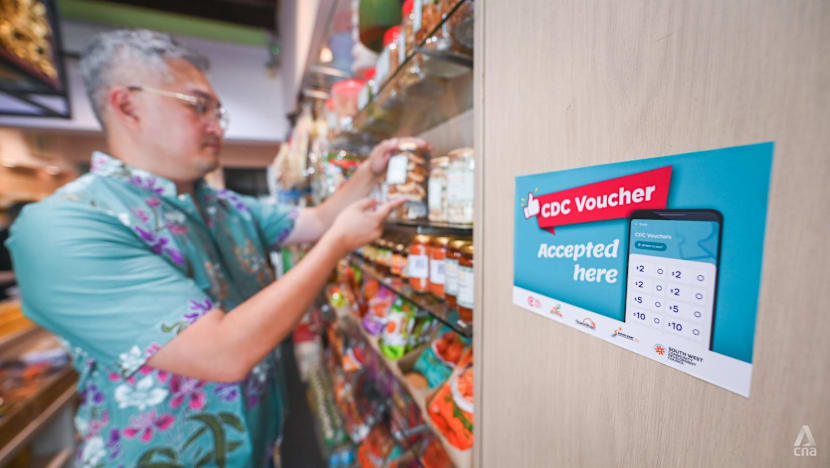
A CDC voucher decal seen in Kim Choo Kueh Chang located at 111 East Coast Road on Sep 4, 2025. (Photo: CNA/Syamil Sapari)

This audio is generated by an AI tool.
SINGAPORE: Since 2024, Ms Cyndy Kumuo has tried – and failed – four times to get her shop accepted by the Community Development Council (CDC) voucher scheme.
She was told that her shop’s location is not within an eligible area, even though other similar businesses nearby have been authorised to accept the vouchers.
The rejection message she received from the CDC voucher team said: “Our scheme is only available for merchants located below (Housing and Development Board) housing estates and in hawker centres.”
Ms Kumuo’s shop, I.N.U Boutique, is located in Balestier and sells pet products. She rents the space from a private landlord.
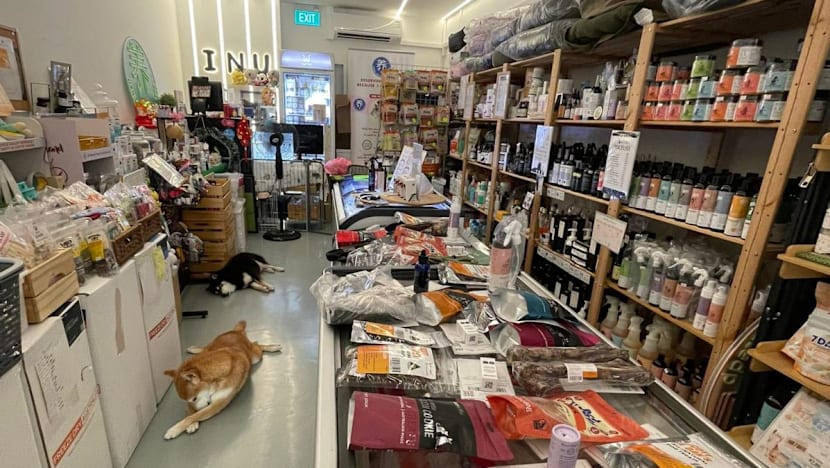
Checks by CNA found that a shop offering pet-related services which is located in a privately owned shophouse a five-minute walk away is able to accept CDC vouchers, and by extension, SG60 vouchers.
“What is your criteria for this approval?” she asked. “If somebody in the area is approved … then actually you should let everybody in the area accept.”
“It’s not right,” she said. “For us, it’s quite distasteful.”
Her gripes over the CDC voucher scheme came after recent developments in Katong and Joo Chiat. Commercial spaces in the area are mostly privately owned or leased by private landlords and developers.
Last month, 25 merchants – including pet supplies shop Paw Mrkt and motorcycle shop Creo Customs – in the Katong and Joo Chiat area succeeded in their appeal to be included in the scheme following a four-month long effort by the area’s business association.
Mr Edmond Wong, chairman of the Katong-Joo Chiat Business Association, said many merchants in the area had previously applied but were rejected.
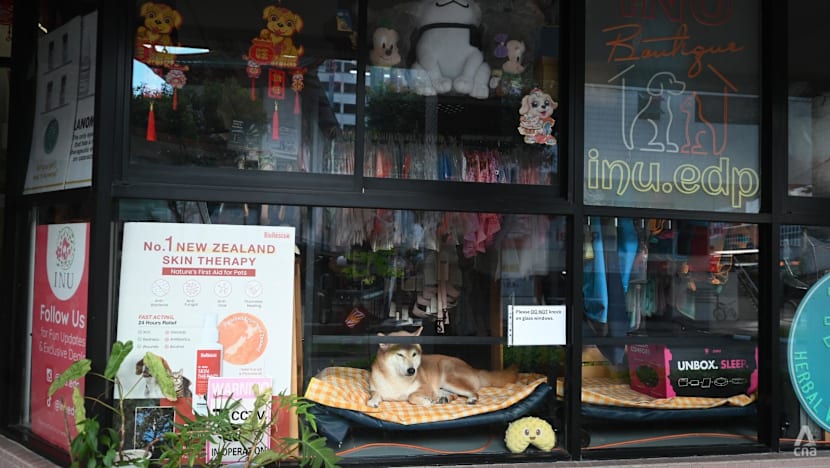
Speaking to CNA, Mr Wong said his application for his family’s rice dumpling shop Kim Choo Kueh Chang was previously rejected on the basis that it is not in Singapore’s heartland zone.
Mr Wong said he decided to submit an appeal, as it was a common concern among various shops that were also struggling with high rental and operational costs.
Recalling a meeting with the South East CDC, Mr Wong said merchants had been facing financial challenges and asked the council to consider their appeal to approve the use of CDC vouchers.
Some merchants were sceptical about whether the appeal would succeed. “They felt that it's not possible to get … they were very discouraged initially,” said Mr Wong.
The business association was ecstatic when they found out that the appeal worked. “We’re just very happy and delighted that they have shown some graciousness in this,” he said.
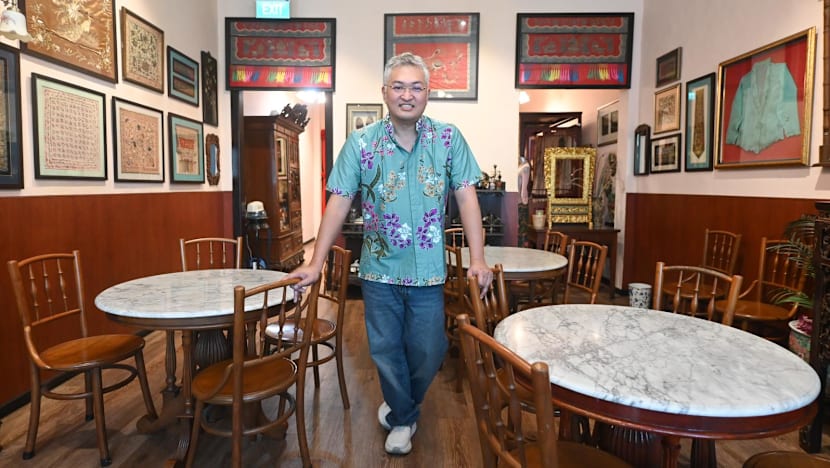
LOCATION INELIGIBLE?
But for Ms Kumuo and other business owners who still have not been accepted to the scheme, the successful appeal raises questions about the criteria used to decide a merchant’s eligibility, as well as the arbitrary nature of the appeals.
According to the CDC vouchers website, the vouchers can be used at “all participating heartland merchants, hawkers and supermarkets islandwide”.
The rejection message to Ms Kumuo said heartland merchants are those that are under HDB blocks and in HDB malls and complexes.
Only local small and medium enterprises (SME), as defined by government agency Enterprise Singapore, are eligible, according to the rejection message that Ms Kumuo received.
The trade promotion agency defines SMEs as businesses with an annual sales turnover of not more than S$100 million (US$77.6 million) and not more than 200 employees, among other criteria.
Merchants deemed ineligible include those located within private malls, condominiums, commercial and industrial buildings, conservation shophouses, mixed developments, bus interchanges and malls in MRT stations, as well as hotels and hospitals.
In addition, CDC vouchers cannot be accepted at kiosks, pop-up stores and by night market vendors.
Despite this, there are shops in Bukit Timah, near Orchard Road and in private condominiums that accept the vouchers, according to the government’s map of participating merchants.
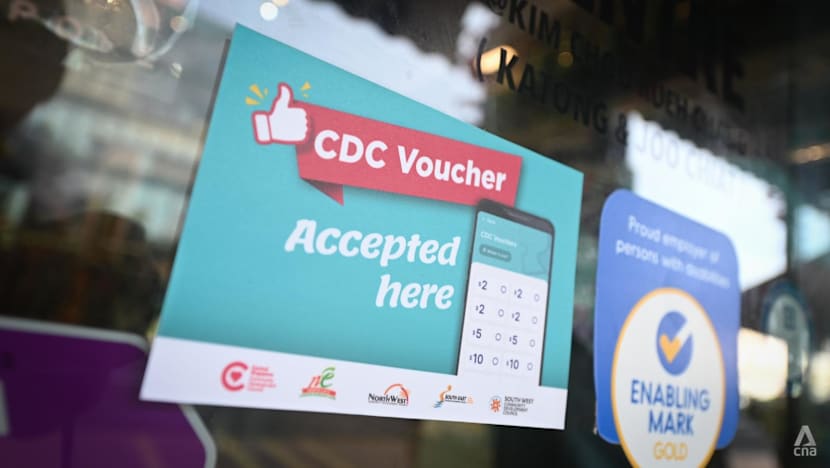
A staff member at gourmet grocer The Fishwives, which is located in a commercial shop unit along Bukit Timah Road, told CNA that the business had no trouble registering and being onboarded as a merchant that accepts CDC vouchers.
The business had been quickly approved after filling out an application form and was accepted without the need for an appeal, said the staff member, who gave her name as Ms Jaffar.
She added that other commercial shops along that stretch of road also were able to be approved, and that she believes only the shops within malls faced onboarding difficulties.
The ability for customers to use their CDC vouchers at The Fishwives was good for the business. Customers are happy that they are able to tap their vouchers for purchases, she said.
In response to CNA’s queries on eligibility criteria and variability in approvals, a CDC spokesperson said: “The CDCs and CDC voucher ambassadors continue to work closely with key partners including Federation of Merchants’ Association, Singapore, Heartland Enterprise Centre Singapore, and various merchant and hawker associations, to onboard the eligible merchants.”
“Generally, heartland merchants and hawkers are those that offer daily necessities and services. However, the vouchers cannot be used to purchase lottery products, petrol, diesel, alcohol, or cigarettes,” the spokesperson said.
CDC voucher ambassadors help residents with claiming their vouchers and merchants with navigating the scheme.
EXCEPTIONS GRANTED TO "ESSENTIAL SERVICES"
Emails from the North East CDC seen by CNA said that exceptions are made for merchants providing essential services in neighbourhoods where there are no HDB merchants nearby.
That ensures that residents maintain “convenient access to essential goods and services using their CDC vouchers”, one email said.
The CDC was responding to an appeal by F&B consultant Khoo Keat Hwee on behalf of a coffee shop in Pasir Ris that was rejected by the scheme because it is located in a former primary school.
For hawkers to be eligible, they have to be operating at National Environment Agency (NEA) markets and hawker centres, HDB coffeeshops and JTC industrial canteens, another email said.
The North East CDC's email said its staff observed “several eligible merchants providing similar services within walking distance”, which means that residents can easily find stores that accept the vouchers.
“Given this, we are unable to make an exception for your establishment at this time.”
Mr Khoo said there is a lot of uncertainty over how the appeal decisions are made.
“Some places are just outside of the heartlands, or they are inside the heartland, but in a different building. So it’s like you’re just being ‘born’ at the wrong place,” he said.
Ms Gladys Lim, founder of LimCha Teahouse in East Coast Road, said she was told that shops outside of HDB and heartland areas may be approved based on factors such as residential demographics, essential trade types and local needs.
Food retail is an example of an essential trade type, CDC told her, according to another email seen by CNA.
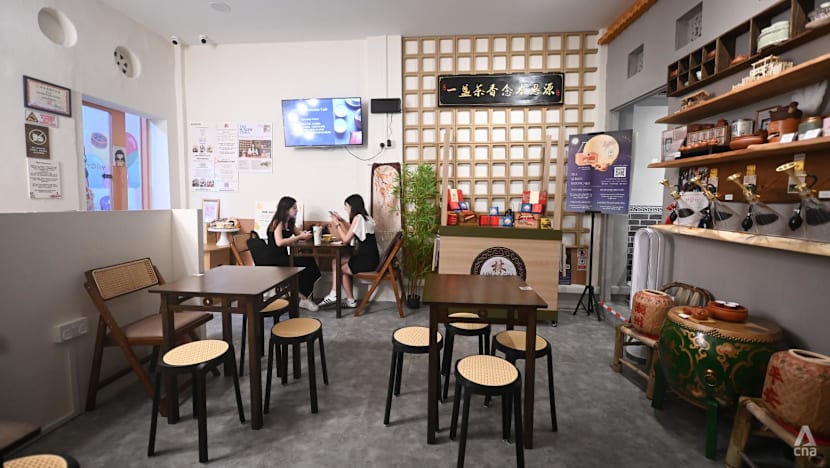
The email said that LimCha’s business model, which includes F&B services and baking workshops, is not within the current scheme’s parameters. It said CDC is committed to applying its guidelines consistently.
In August, she was asked to provide documentation showing that residents are interested in using vouchers at her shop as part of the appeal process.
She said many people staying in the area had questioned why she cannot accept the vouchers, but she found CDC’s request “ridiculous”. She sent a screenshot of a customer asking her about the vouchers, only to be asked to share more examples.
While her appeal has not yet been rejected, a CDC representative told her there is an ongoing review of applications for merchants operating from shophouses in residential areas.
The email said that the review involves potential policy changes that would affect all merchants in Singapore, so multiple factors need to be carefully evaluated. A thorough assessment to ensure fair consideration for all stakeholders will require time, it added.
CNA has reached out to CDC for comment on whether it plans to review the eligibility criteria based on feedback from merchants.
RESIDENTS PRIORITISE SHOPS THAT ACCEPT VOUCHERS
In the meantime, some customers are blaming shops for not accepting the vouchers, thinking they are too proud to apply for it, said Mr Khoo, the F&B consultant.
The general manager of a vegetarian restaurant in Balestier, who wanted to be known only as Ms Tan, said when a new tranche of vouchers is released, business drops by 30 to 40 per cent as residents prioritise visiting shops where they can spend the vouchers.
Several merchants also brought up the fact that the vouchers can be spent on non-essentials such as durian, gaming consoles and massages, which are sold under HDB blocks or in heartland areas.
As a Singaporean owner of a small, local business, being told that she cannot accept SG60 vouchers leaves an unpleasant feeling, said Ms Tan. “In terms of their criteria, I think it's outdated or irrelevant.”
Ms Joyce Chung, managing director of Guilt Free Food, suggested a relook at the eligibility criteria based on the type of business, rather than where the merchant is located.
She said her shop sells baked goods that are suitable for diabetics and those with special dietary requirements, and the CDC could consider such contributions to the community in assessing applications.
Ms Chung said she would continue to appeal, but other merchants CNA spoke to felt differently.
Ms Kumuo of I.N.U Boutique believes that her shop has already missed the boat since the SG60 vouchers were given out in July.
“We already missed it, (it’s) too bad for us already.”














